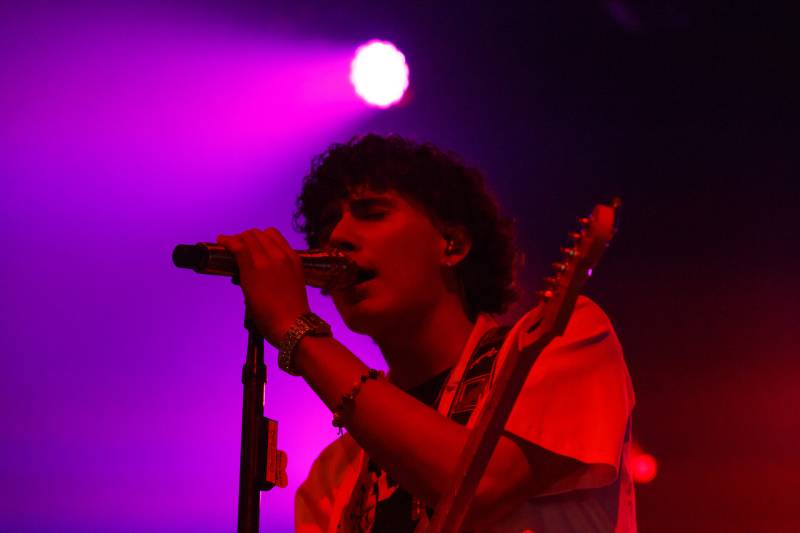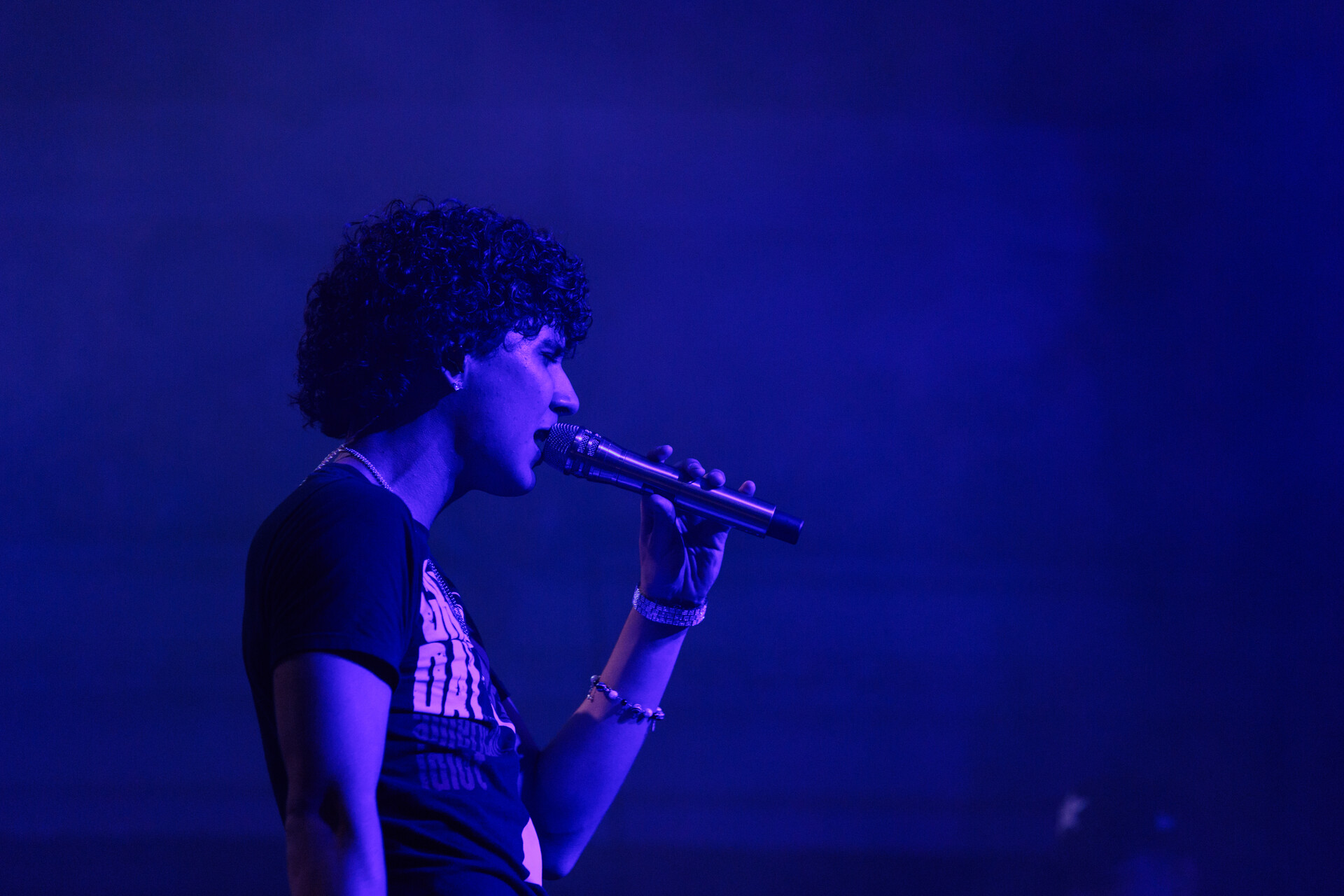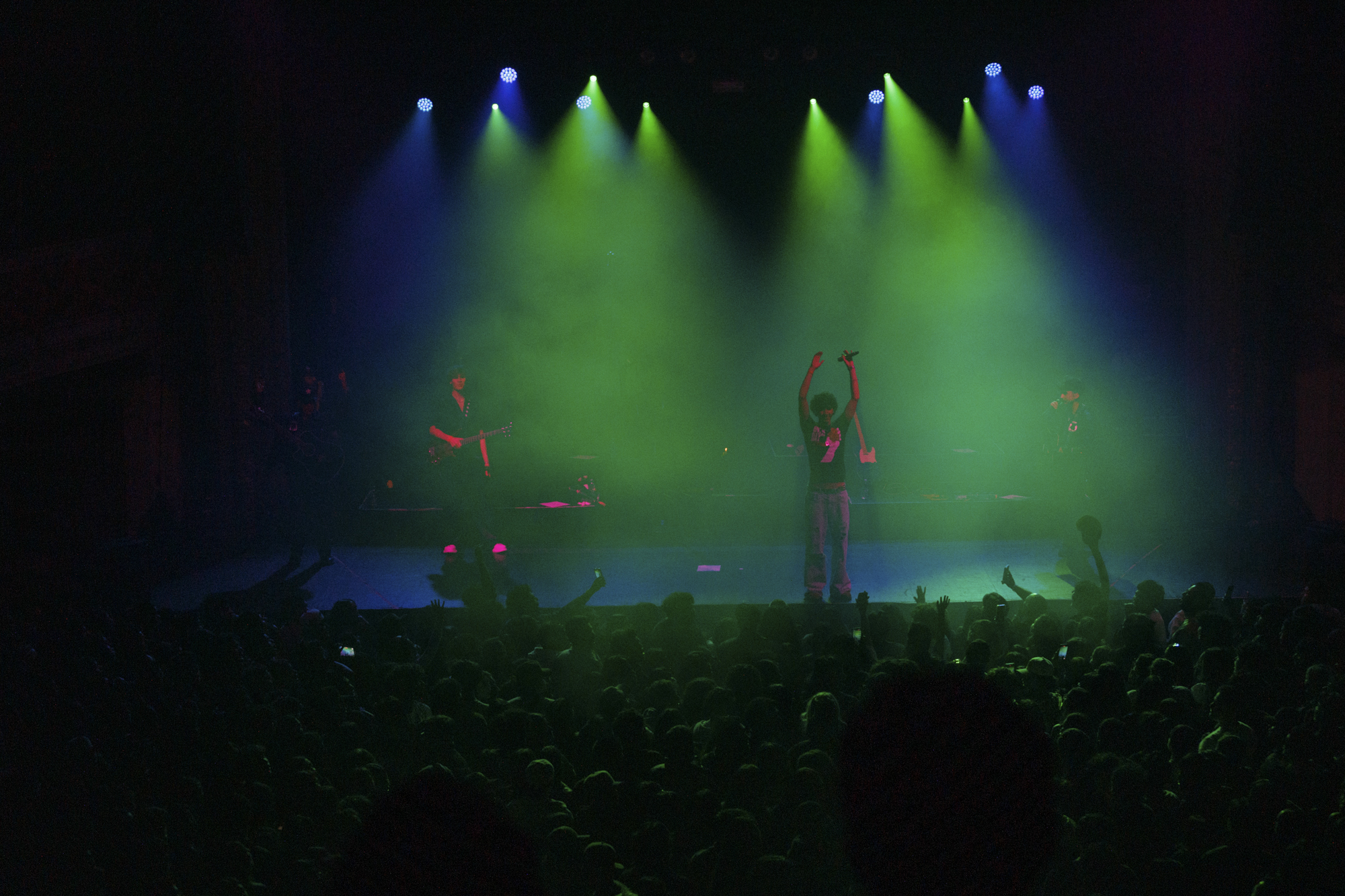It may have been DannyLux’s first time performing in San Francisco. But when the rising regional Mexican music star stepped onto the stage at the Regency Ballroom on May 1, you would have thought he was born and raised in the Bay Area.
Wearing a Green Day shirt, jumping high in the air and beaming, Danny, or Daniel Balderrama Espinoza, kicked off the show with “Ciudad del Sol” from his latest album, EVOLUXIÓN. The crowd of mostly young Latinos chanted his name nonstop throughout the show; many had come from as far as Santa Rosa and Gilroy.
At 20 years old, the Palm Springs-raised, Mexican American singer has a long list of achievements: several Gold-certified singles (the first arrived when he was only 16), a 2023 Coachella performance and a Mexican tour with Coldplay.
His appeal transcends language barriers: His NPR Tiny Desk performance last year confirmed that fans don’t need to speak Spanish to feel the emotion in his songs, most of them ballads with heartbreaking lyrics accompanied by acoustic guitars and downtempo bass. A little bit bolero, a little bit sierreño, a little bit corrido, but, as the young singer says, always with “el estilo del Danny” — “in Danny’s style.”
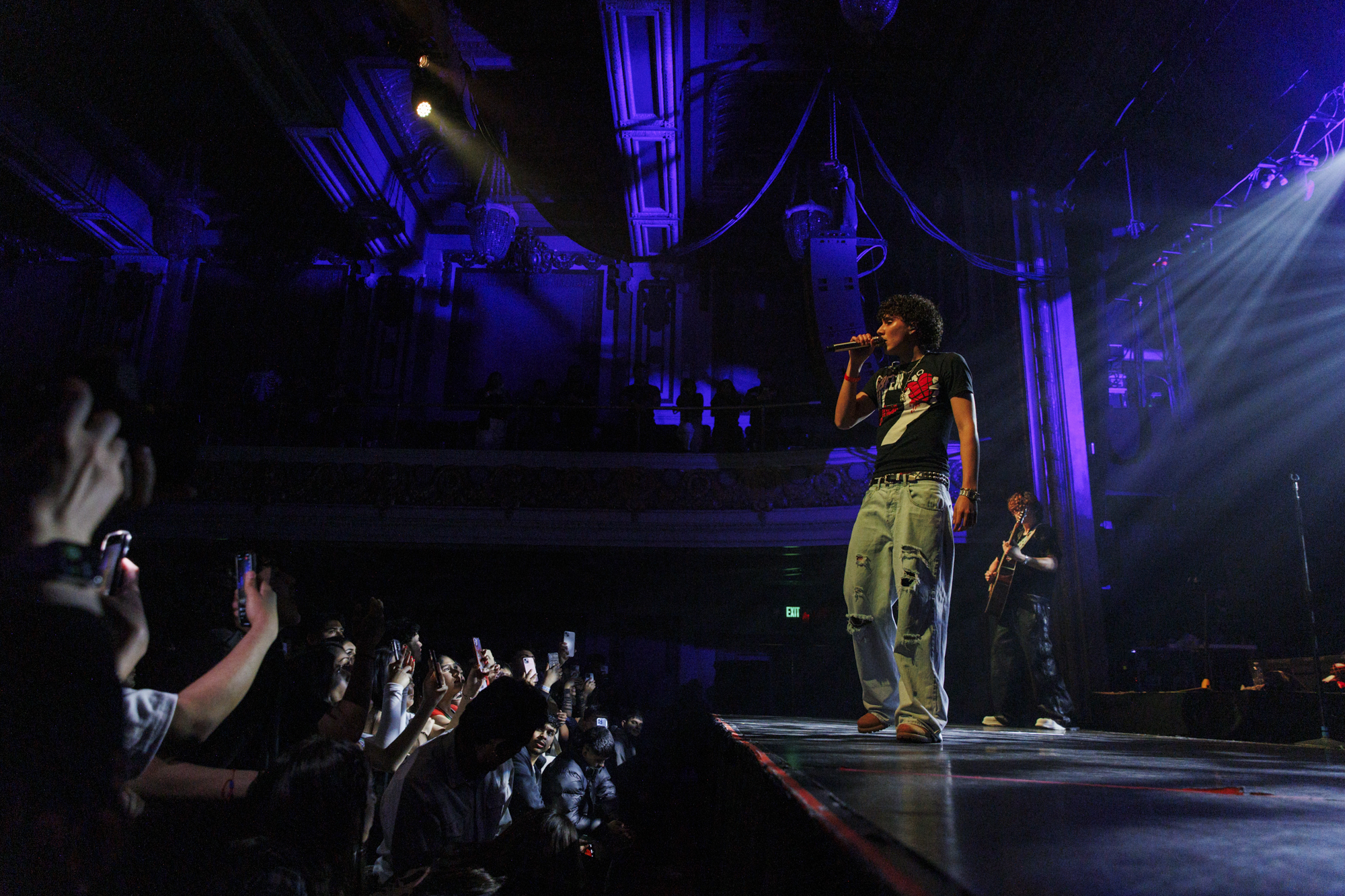
Along with other young talents like Eslabón Armado (NorCal locals from Patterson), Riverside’s Iván Cornejo and Los Del Limit from Midfield, Texas, Danny’s success shows that Mexican Americans are playing a critical role in the future of regional Mexican music. “Me siento 100% mexicano,” he told KQED in an interview before the show. (More from that conversation below).
Danny’s cultural pride begins with his love for his family. After all, he creates so much of his music with them. Next to Danny on stage was his cousin, Eduardo, on bass, and Danny’s longtime friends, Daniel and César, on guitar. Danny’s parents and sister were at the show, rooting for him from backstage. In the middle of “Corazón Frío,” he brought out his mom for a dance and a hug. Thanking his family, Danny looked out at the crowd and added, “Hasta ustedes se sienten como mi familia.” (“Even all of you feel like my family.”)
Along with his smooth, melodious voice — which skillfully moved through “El Dueño De Tu Amor,” “Si Supieras” (a collab with Eslabón Armado) and bachata-infused “El Hombre Perfecto” — what makes Danny stand out as a performer is his capacity to be so transparent with his emotions. El regional mexicano has traditionally been a genre where men can openly be vulnerable, and Danny honors that legacy while pushing it forward for a new generation.
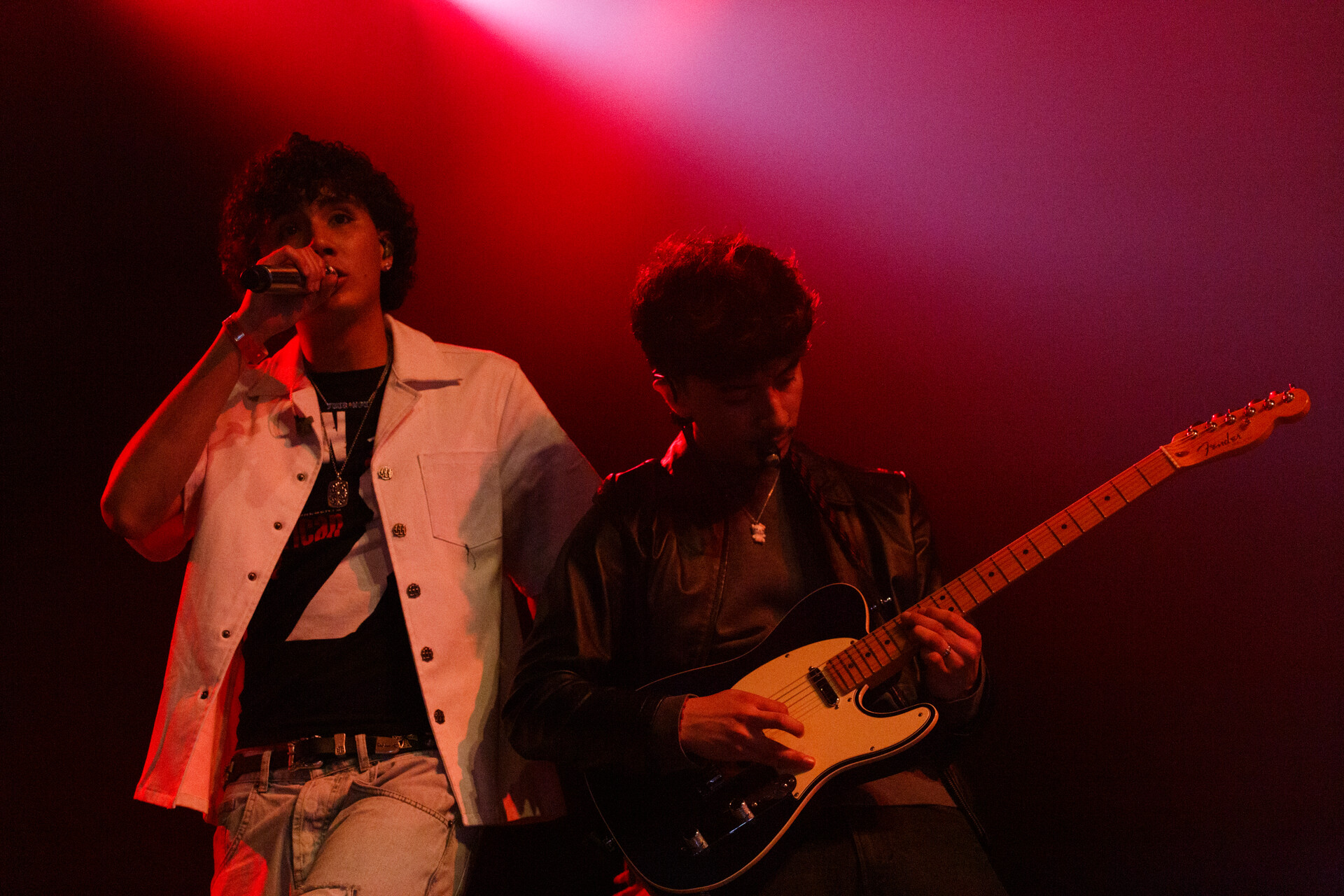
One of his first hits was “Jugaste y Sufrí” (another collab with Eslabón Armado) from 2020, a time when many of Danny’s young fans were isolated during COVID-19 lockdowns. The track rapidly spread on TikTok, and became an outlet for young people processing intense grief.
On stage, Danny acknowledged the track’s impact. “Estoy aquí gracias a esta canción,” he said (“I’m here thanks to this song”), and asked the crowd to light up their phones. It felt like a full-circle moment, being able to celebrate with the artist a song many of us first heard during so much loneliness and uncertainty.
A couple songs later, the crowd was back to jumping and dancing to “House of Lux,” which seamlessly fuses el regional mexicano with house. “All of my songs, they’re built upon the base of regional mexicano, but I don’t want to stay in a box,” he told KQED, and added that his mind is brimming with new musical ideas.
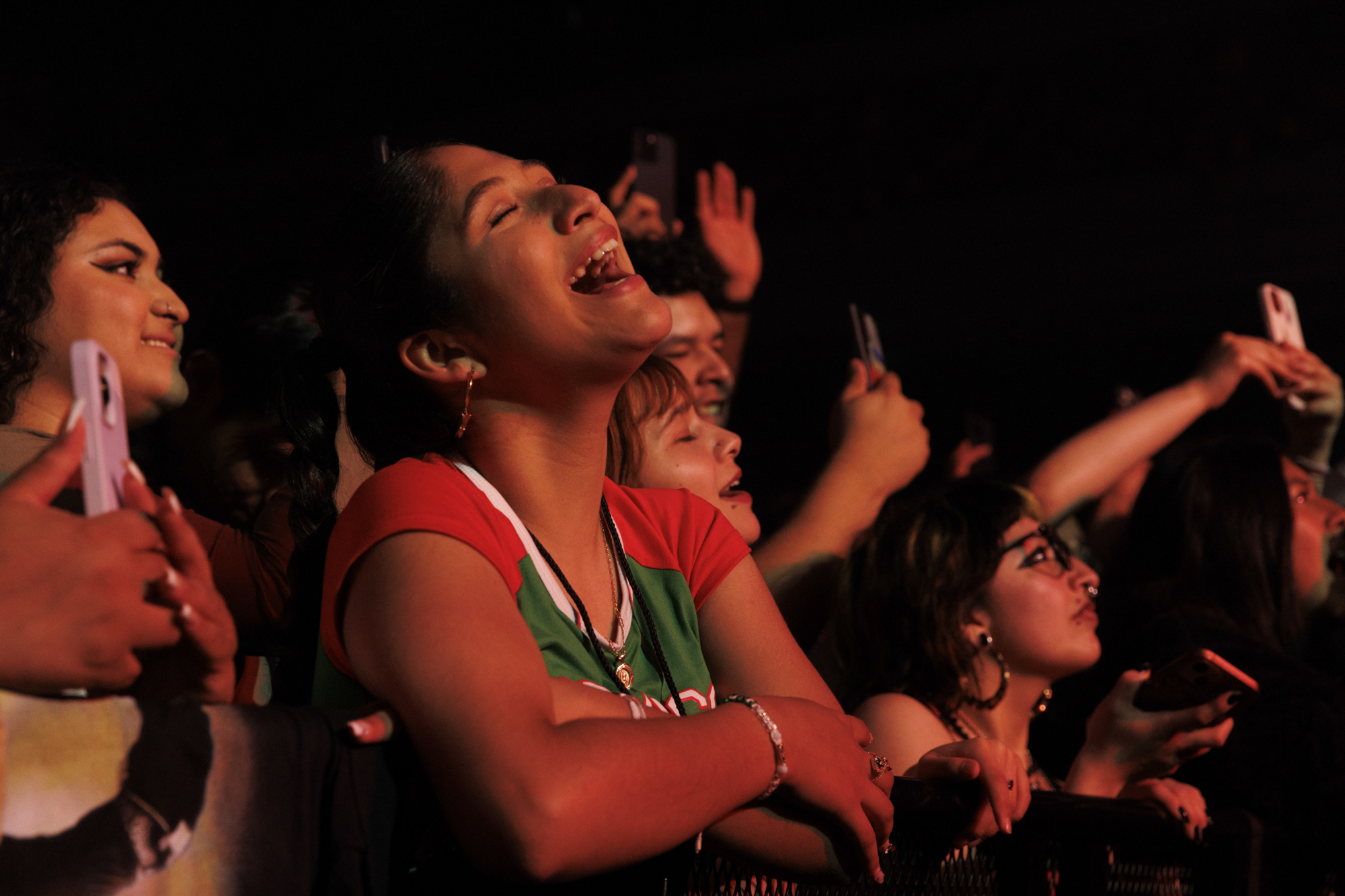
That vision certainly resonates in the Bay Area, where it’s common to go out and hear house, hip-hop, cumbia and Brazilian funk in the same DJ set. And of course, for diehard fans of regional and sierreño, Danny and his grupo brought it home, with Eduardo, Daniel and César rascando la guitarra — breaking into deep, melodic guitar riffs — while Danny interjected with a grito, a holler imbued with emotion that moves from the bottom to the top of your chest.
“¡Un grito a todos los dolidos!” — “A grito for all of those feeling grief!”
The crowd responded with their own gritos. Danny may not have grown up riding BART or spent Sundays chilling at Dolores Park, but on Wednesday he gave voice to so many young Latinos of the Bay who are coming into their own and seeking the words to define what they feel.
To adapt a chant of solidarity made popular in Mexico City during the 2018 Men’s World Cup, “Danny, Danny, hermano, ya eres sanfranciscano.”

Danny spoke to KQED before his San Francisco show to share more about where he wants to take his music next, why it matters to share what we feel and what it means to balance two cultures — Mexican and Californian.
This interview has been edited for length and clarity. Part of the interview was translated from Spanish.
Carlos Cabrera-Lomelí: Let’s start off with your new album. You’re trying out a lot of new things, bringing things in like tropical and house, along with música regional, and you’re having a lot of fun too. Why is it so important for you to experiment?
DannyLux: I feel like experimenting really helps me find myself as an artist. You can’t really say you’re a certain type of genre artist if deep down you like to make more than that. All of my songs, they’re built upon the base of regional mexicano, but I don’t want to stay in a box. I want people from all over the world to be able to hear me.
Right now the regional mexicano genre is going up so much. It’s one of the most popular genres there is. But I don’t want to be like anyone else. A lot of people ask me, “Do you want to be the next Peso Pluma? Do you want to be the next Nata [Natanael Cano]?” But I just want to be the next DannyLux. I just want to be me.

And I can imagine that the music you’re listening to is not just música regional. You’re listening to bachata, cumbia, reggaetón.
Yeah, I’m listening to a lot of things. I feel just having that knowledge of a lot of different styles of music really helps you as an artist. Honestly, I feel maybe in the future, the songs that I make five years from now are going to sound nothing like the style I make today. I don’t ever want to settle.
